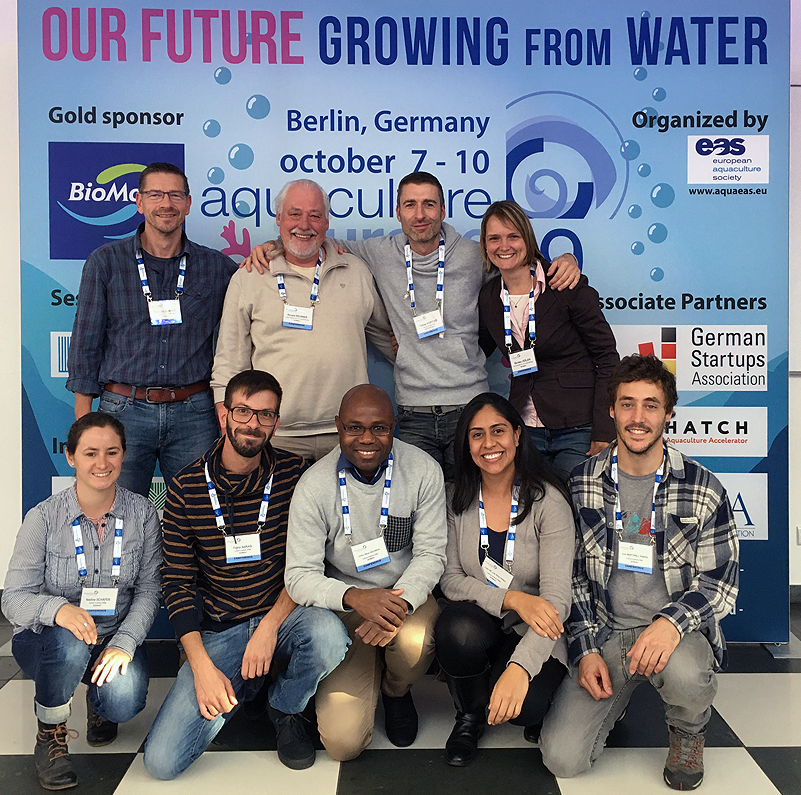Research
Of the 34,500 known fish species, about 400 are reared in aquaculture. A total of 54 million tons of fish are currently produced to provide animal protein for large parts of the world's population. These numbers continue to rise. Unlike the few mammals that humans have farmed for thousands of years, most aquaculture fish species are very recently in anthropogenic environments. For many of these species, the biological characteristics, the molecular biological phenomena, or the evolved potential for adaptation to different environments are largely unknown. Thus, there is a lack of knowledge on animal welfare and the intrinsic performance of aquaculture fishes. The domestication of many fish species has just begun.
Therefore, the research of the professorship focuses on the elucidation of the genomic, molecular and cellular basis of the adaptability and immune response of fish in aquaculture. Genomes and genome segments of selected fish species, such as rainbow trout, Atlantic salmon, maraena whitefish, pikeperch and African catfish, are analyzed and molecular and functional differences in gene regulation under different environmental conditions are identified. The genetic causes for these differences will be determined and molecular indicators will be provided, which give information about e.g. husbandry stress, immune status or health status of the animals. Based on this, diagnostic monitoring methods will be developed that can be applied in practical aquaculture.
More information about our work can be found at:

